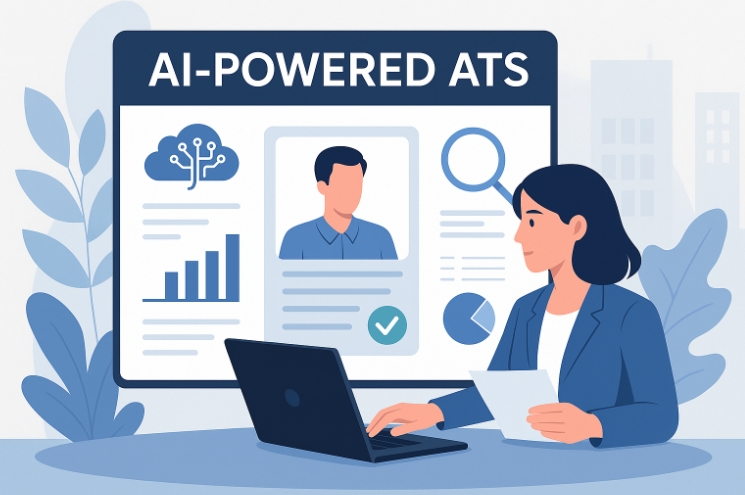
Artificial intelligence is rapidly reshaping global recruitment, changing how employers identify, evaluate and hire candidates. While AI-powered ATS bring efficiency and consistency to the hiring process, experts also warn of new challenges around transparency, bias and data privacy as the technology becomes central to workforce management.
Artificial intelligence is transforming the hiring process across industries worldwide, influencing how employers assess talent and make recruitment decisions. The growing use of an AI-powered ATS, applicant tracking systems that apply algorithms to streamline hiring, has redefined the pace and precision of recruitment in both the public and private sectors.
Companies such as Transformify (TFY) have developed tools that incorporate machine learning into the hiring process, part of a broader movement toward data-driven human resources practices. Industry observers note that using an ATS tool for recruitment is now common in corporate HR departments, government recruitment agencies and startups seeking to scale operations efficiently.
The Efficiency Factor
Automation remains the most visible benefit of artificial intelligence in recruitment. An AI-powered ATS tool for recruitment can process thousands of applications quickly, screening for skills and experience before passing a shortlist to human recruiters. For organizations managing high-volume hiring, particularly in industries such as technology, healthcare and logistics, the efficiency of using some of the best ATS software is a key advantage.
An ATS tool for recruitment also helps standardize workflows, from resume parsing to interview scheduling. In many cases, it reduces administrative workload and shortens time-to-hire metrics. Data compiled by HR analytics firms suggest that companies adopting the best ATS software experience measurable improvements in response rates and candidate engagement.
However, efficiency also raises questions about oversight. Recruitment experts caution that overreliance on algorithms can obscure individual judgment and potentially exclude qualified candidates if systems are not regularly monitored or calibrated. Human oversight remains critical in ensuring that automation from the best ATS software supports, rather than replaces, fair evaluation.
Striving for Fairness
One of the major promises of using an AI ATS tool for recruitment is greater fairness. Supporters from companies such as TFY say that algorithms can help minimize human bias by focusing on objective data, skills, experience and qualifications, rather than subjective impressions. The use of an AI-powered ATS allows employers to apply consistent criteria across large applicant pools, improving transparency and helping organizations meet diversity goals.
At the same time, researchers have raised concerns about algorithmic bias embedded within some systems. Because AI learns from historical data, it can unintentionally replicate past inequities if that data reflects biased hiring practices. Regulators in regions including the European Union and several U.S. states are developing frameworks to ensure that companies using the best ATS software comply with emerging standards for algorithmic accountability.
TFY, which operates in the HR technology sector, is one of several companies contributing to these discussions. Industry analysts say that developers building an ATS tool for recruitment must balance performance optimization with safeguards for fairness, transparency and candidate privacy.
Data-Driven Decisions and the Global Impact
Data-driven decision-making is becoming standard practice in human resources management. The integration of analytics into an AI-powered ATS enables employers to measure candidate suitability, forecast hiring needs and evaluate recruitment outcomes over time.
Globally, organizations like TFY in markets such as North America, Europe and parts of Asia are adopting the best ATS software to address talent shortages and improve workforce planning. In emerging economies, the use of an ATS tool for recruitment is being deployed to handle large-scale hiring drives efficiently, particularly in the public sector and technology-based industries.
Yet the growing reliance on algorithmic decision-making also highlights concerns about data protection and transparency. Privacy advocates warn that without clear regulation, the storage and processing of candidate data could expose sensitive personal information. HR professionals are calling for clearer standards on how AI-powered ATS platforms handle consent and data retention.
Challenges Ahead
While many HR leaders, such as TFY, view AI as essential to modern recruitment, the technology is still evolving. Systems vary in accuracy depending on the quality of the data they process. A poorly trained model can misinterpret candidate profiles or rank applicants unfairly. In addition, smaller companies often face cost and integration challenges when implementing the best ATS software, particularly if they lack in-house technical expertise.
Despite these obstacles, experts agree that AI will remain a defining force in recruitment. The challenge, they say, is ensuring that the benefits, speed, consistency and analytical depth do not come at the expense of fairness and accountability. The ongoing dialogue between developers like TFY, regulators and HR professionals reflects a growing recognition that AI’s impact on employment must be carefully managed.
Media Contact
Company Name: Transformify Ltd
Contact Person: Lilia Stoyanov
Email: Send Email
Country: United Kingdom
Website: https://www.transformify.org/
